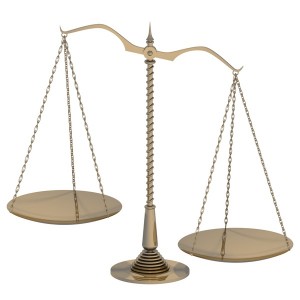Life makes an excellent case for both pessimism and optimism. There’s birth and death, success and failure. The stock market may be up, but joblessness is too high. The world is progressing; progress is leaving tradition behind. Someone is offered a new beginning just as she experiences an unfortunate ending. Like most cliches, the one about the glass being half full or half empty is true. The optimist and the pessimist have ample (and largely inconclusive) evidence for their respective positions.
Over at Bookforum, Kerry Howley takes up this perennial debate. Using quotes from the books of saccharine optimist (and preacher) Joel Osteen and arch pessimist (and philosopher) Arthur Schopenhauer,1 Howley stages an argument between the two on the interpretation of life.
ARTHUR SCHOPENHAUER: This world is a scene of tormented and agonized beings, who only continue to exist by devouring each other, in which, therefore, every ravenous beast is the living grave of thousands of others, and its self-maintenance is a chain of painful deaths; and in which the capacity for feeling pain increases with knowledge. […]
JOEL OSTEEN: Do you know the more we talk about something, the more we draw it in? Here is the key: You’ve got to send your words out in the direction you want your life to go. You cannot talk defeat and expect to have victory. You can’t talk lack and expect to have abundance. You will produce what you say.
There is a young lady on staff at Lakewood Church. She told our women’s group that every morning before she leaves the house, she looks in the mirror and says, “Girl, you are looking good today.” I saw her a while back and asked if she was still doing it. She said, “Yeah. In fact this morning, Joel, when I looked in the mirror I said, ‘Girl, some days you look good, but today you’re looking really good.’” I encourage you to be bold in the same way.
The whole dialogue is worth a read. Osteen peddles the power of positive thinking. Schopenhauer offers a bracing rationality. Ultimately Osteen will rot your teeth and Schopenhauer will make you cry. Through the gloom, Schopenhauer finds something important, something I see as hopeful even if he doesn’t.
SCHOPENHAUER: The inmost kernel of Christianity is the truth that suffering—the cross—is the real end and object of life. That in recent times Christianity has forgotten its true significance, and degenerated into dull optimism, does not concern us here.
As Holy Week always reminds us, Christianity is not about the power of dull optimism or positive thinking. Suffering is a harsh and ubiquitous reality – whether seen in Jesus on the cross or in the countless daily crucifixions we encounter. In other words, denying suffering it is simply dishonest.
But while the truth of suffering is as real as Schopenhauer says, for a Christian it’s not the end of life but the way to life. The scars of Friday afternoon open the way to Sunday’s joy.
—//—
- For a more scholarly and subtle treatment of Schopenhauer, I recommend the Stanford Encyclopedia of Philosophy. ↩



